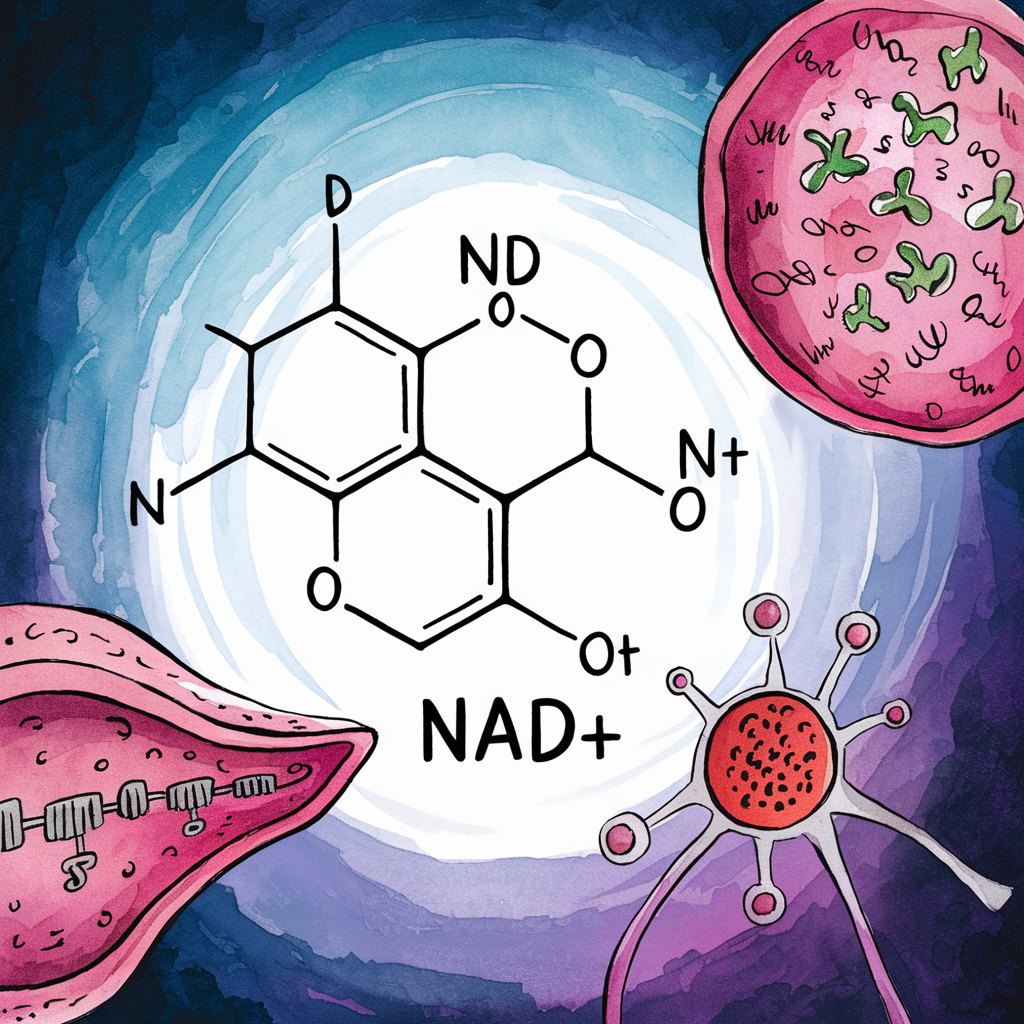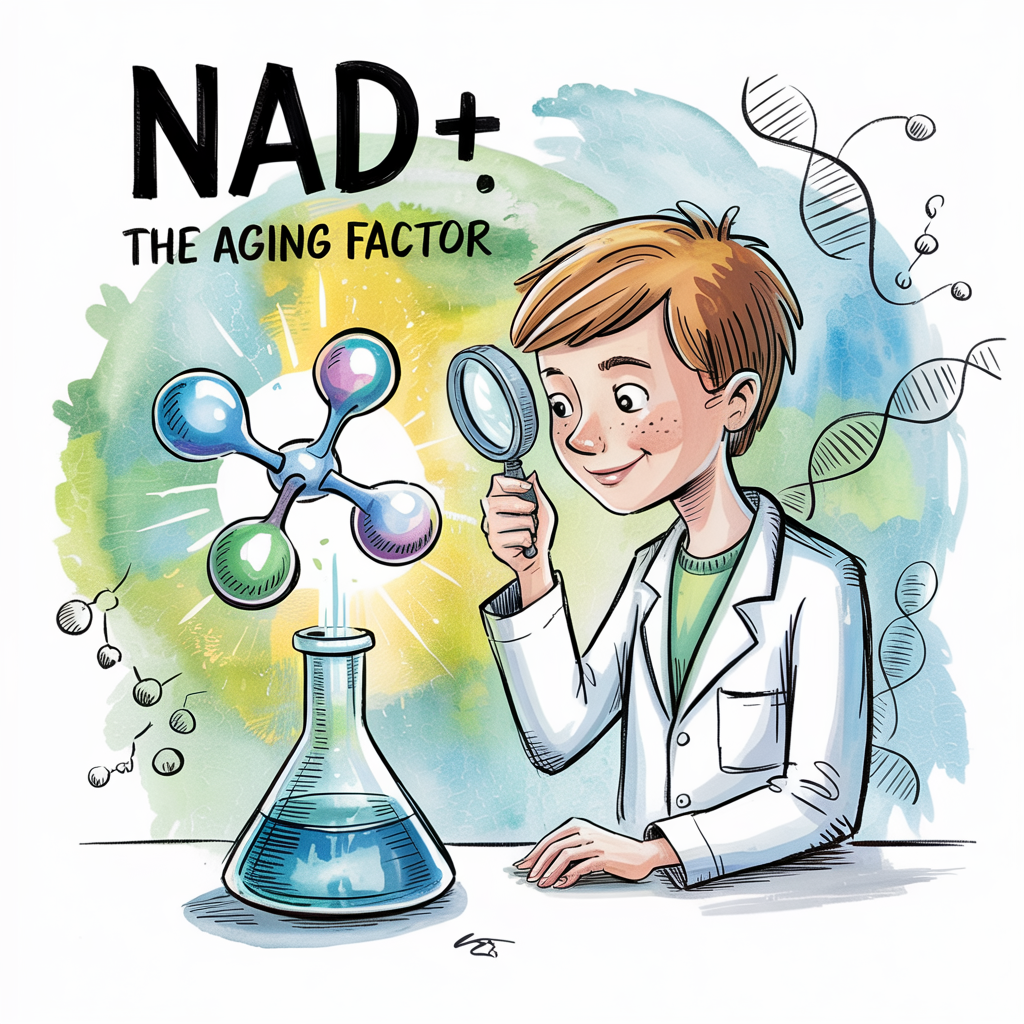NAD+ and Metabolic Diseases: A Focus on Cancer and Diabetes
The relationship between NAD+ and diseases like cancer and diabetes is complex and still under active research. Here’s a breakdown of the key points:
NAD+ and its Role:
- Essential Coenzyme:
- NAD+ (nicotinamide adenine dinucleotide) is a coenzyme found in all living cells.1 It plays a crucial role in various biological processes, including energy production, DNA repair, and cellular2 signaling.3
- Cellular Health:
- NAD+ is vital for maintaining cellular health and function.4 Its levels naturally decline with age, and this decline is associated with various age-related diseases.5
NAD+ and Cancer:
- Complex Relationship:
- The role of NAD+ in cancer is multifaceted.6 Cancer cells often exhibit altered NAD+ metabolism to support their rapid growth and proliferation.7
- Some research suggests that increasing NAD+ levels may promote cancer growth, while others explore the potential of targeting NAD+ metabolism to inhibit cancer cell survival.8
- Research Focus:
- Researchers are investigating how manipulating NAD+ pathways can be used in cancer therapy.9 This includes exploring ways to:
- Inhibit NAD+ synthesis in cancer cells.10
- Target enzymes involved in NAD+ metabolism.11
- Understanding how NAD+ effects the tumor microenvironment.
- Researchers are investigating how manipulating NAD+ pathways can be used in cancer therapy.9 This includes exploring ways to:
- Important note:
- Because of the complex nature of NAD+ within cancer cells, NAD+ IV therapy is often contraindicated for those with active cancer.12
NAD+ and Diabetes:
- Metabolic Regulation:
- NAD+ plays a critical role in regulating glucose metabolism and insulin sensitivity.13
- Studies suggest that increasing NAD+ levels may improve insulin sensitivity and glucose tolerance, which are key factors in diabetes management.14
- Potential Benefits:
- NAD+ supplementation may help improve mitochondrial function and reduce oxidative stress, both of which are implicated in the development and progression of diabetes.
- Research Areas:
- Researchers are investigating the effects of NAD+ precursors, such as nicotinamide riboside (NR) and nicotinamide mononucleotide (NMN), on diabetes prevention and treatment.15
NAD+ Testing:
- Current Availability:
- NAD+ testing is available through some specialized clinics and laboratories.16 These tests typically measure the levels of NAD+ in blood or other biological samples.17
- Potential Benefits:
- For cancer and diabetes patients, NAD+ testing could potentially provide insights into their metabolic health and guide personalized treatment strategies.
- It may help to provide a baseline, and to track the effectiveness of NAD+ increasing therapies.
- Important consideration:
- It is important to discuss NAD+ testing with a qualified healthcare professional to determine its appropriateness and interpret the results.
NMN Use for Cancer/Diabetes Patients:
- Consultation is Crucial:
- It is essential for cancer and diabetes patients to consult with their healthcare providers before using NMN or any other NAD+ precursors.
- Due to the complex interaction of NAD+ within cancer cells, supplementation could be dangerous.18
- Potential Risks and Benefits:
- While NMN has shown promise in some studies, its long-term effects and safety profile are still being investigated, especially in patients with cancer or diabetes.19
- The potential benefits of NMN for diabetes patients include improved insulin sensitivity and glucose metabolism.20
- The risks for cancer patients are less understood, and therefore, extra precaution is necessary.
- Guidance:
- Healthcare professionals can provide personalized guidance on the appropriate use of NMN, considering individual health conditions and potential drug interactions.21
Key Takeaways:
- NAD+ plays a vital role in cellular health, but its relationship with cancer and diabetes is complex.
- NAD+ testing may offer valuable insights, but it should be done under the guidance of a healthcare professional.
- NMN use should be approached with caution, especially for cancer and diabetes patients, and always in consultation with a doctor.
It’s important to emphasize that research in this area is ongoing, and more studies are needed to fully understand the role of NAD+ in cancer and diabetes.





